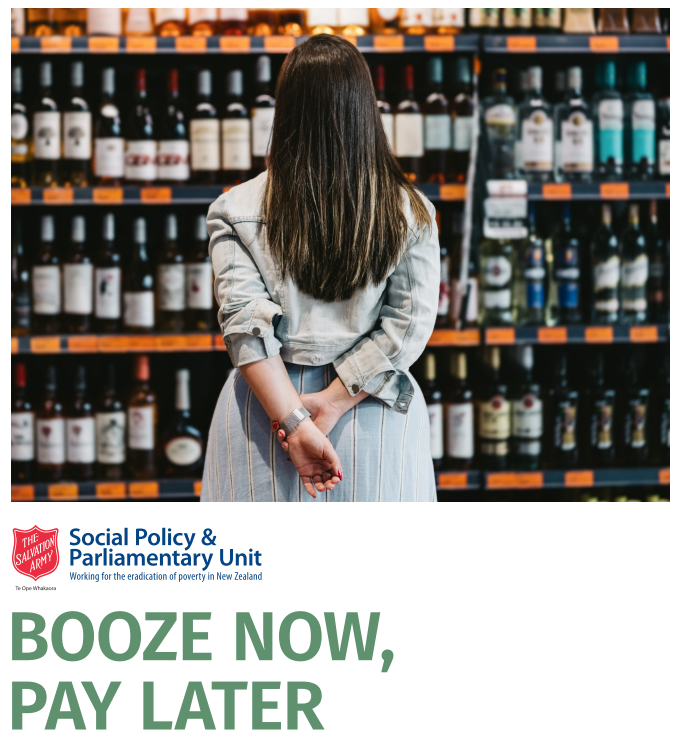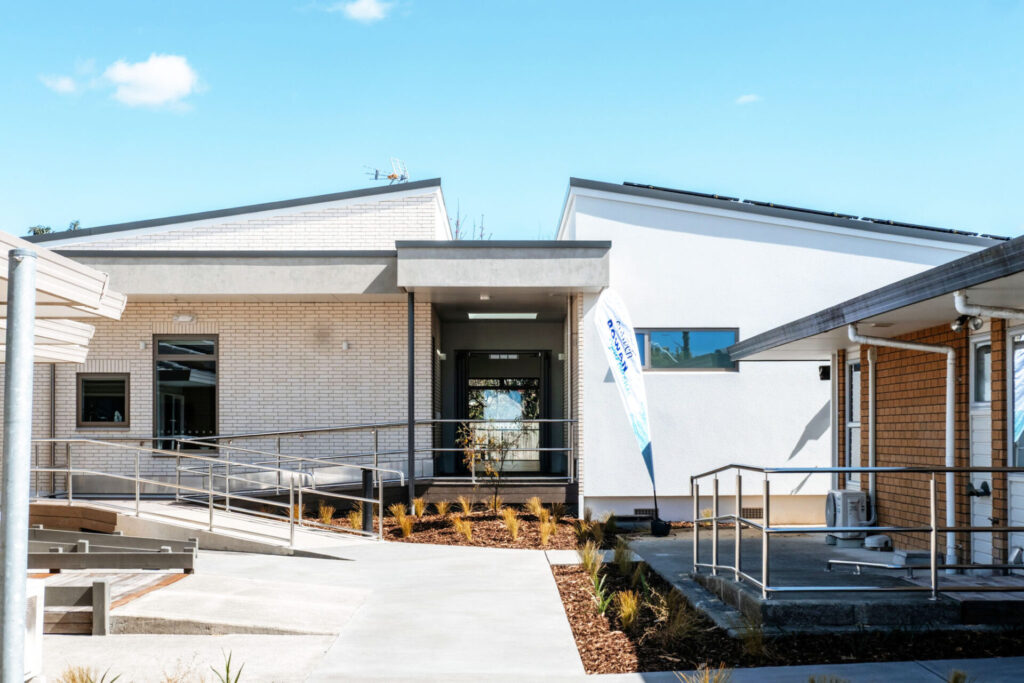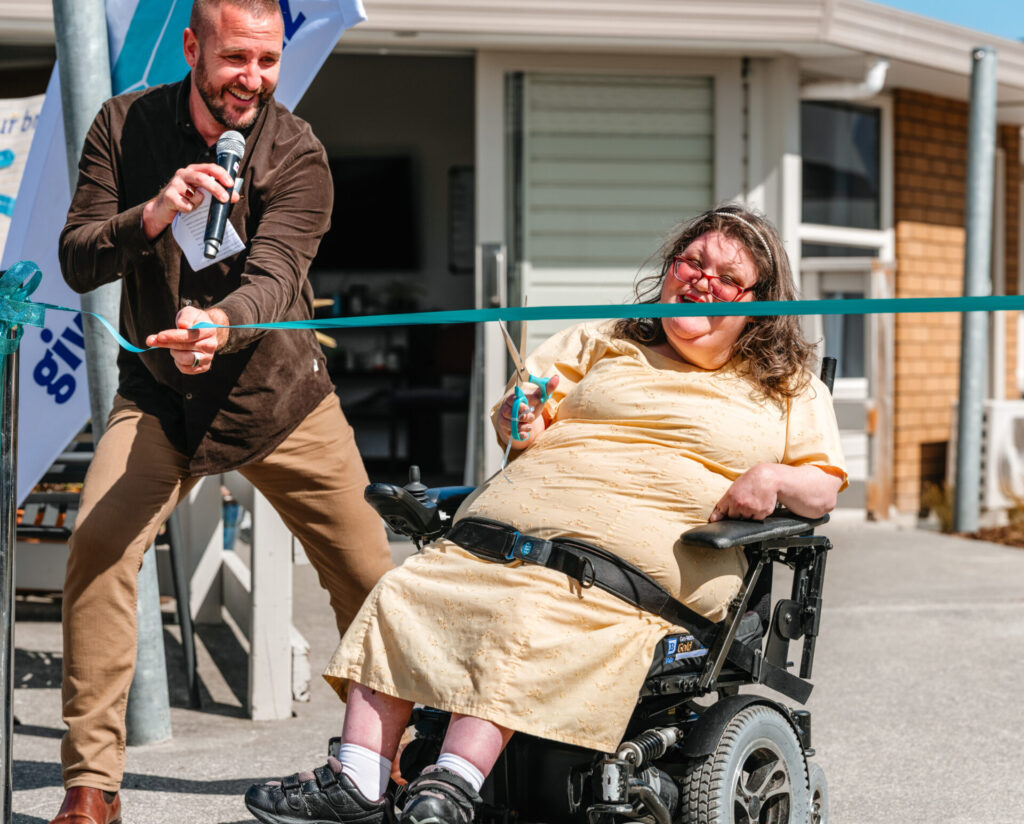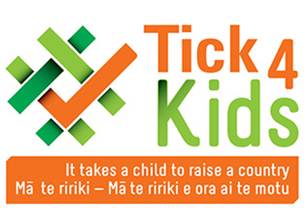You can jump to the section most relevant to your work:
- Tō Tātou Rāngai | Our Sector
- Tō Tātou Whakauru | Our Membership
- Ōritetanga me te whakaurunga | Equity & Inclusion
- Kaumātua | Older People
- Tamariki | Children

Caring for the carers
Today is the United Nations International Day of Care and Support. The New Zealand Council of Christian Social Services (NZCCSS) wants to recognise the support, service and aroha provided in communities by the organisations and hard-working staff in our network.
Care work is essential for so many people to live well and for a thriving Aotearoa.
We want to take this time to thank you for all you do!
NZCCSS supports our aged care sector
A recent report from the New Zealand Nurses Organisation (NZNO) highlighted the challenges faced by the aged care sector. However, we were disheartened with the framing of the report which included some fairly inflammatory claims of abuse and neglect. Any claims of abuse and neglect are incredibly concerning and we agree that further support is needed for the aged care sector in particular to ensure it is adequately funded and future-focused. However NZCCSS does not believe that this report reflects the hard work and care the providers in our network put in to support the older people in their services.
In fact, within the NZCCSS network, despite the financial and capacity pressures faced, many providers continue to go above and beyond to support those in their care and the wellbeing of seniors in the community. For example:
- Christchurch Methodist Mission has established Whare Tiaki in Papanui which is a supported living home for kaumātua Māori. Tikanga shapes the way the whare operates, creating a culturally-grounded, holistic model of care.
- Enliven Southland is hosting a recycled fashion show bringing together all four of their care homes for an afternoon of fun and creativity.
We will continue to highlight the work of our members who are providing excellent care despite the difficult and unsustainable funding.
NZCCSS wants to see further progress on the aged care review and we welcome the establishment of a Ministerial Advisory Group to inform the future approach to aged care.

Booze Now, Pay Later

The Salvation Army Social Policy & Parliamentary Units (SPPU) Booze Now, Pay Later report, released earlier this month, highlights suggestions to prevent increases in alcohol related harm which are likely to result if deferred payment schemes become more commonly used for its purchase.
Alcohol is considered to be New Zealand’s most harmful drug, responsible for $9.1 billion in harm each year. Off-licences are more prominent in high deprivation communities, with longer trading hours and aggressive discounting correlating with higher levels of alcohol related harm, hospital admissions, police call outs and financial stress. Buy Now Pay Later (BNPL) options are disproportionately used by low-income households with multiple small BNPL often combining to unmanageable debts.
Although the option for BNPL payments for the purchase of alcohol is currently limited to 22 merchants nationwide, with the rise in popularity of this payment method it is only a matter of time before this increases, raising concerns regarding how this will impact alcohol harm.
SPPU are recommending the following changes to prevent increases in alcohol related harm and prevent normalisation of deferred payment schemes for the purchase of alcohol:
- Prohibit BNPL under the Sale and Supply of Alcohol Act 2012
- Enable BNPL restrictions through Local Alcohol Policies (LAPs)
- Move BNPL services under the Credit Contracts and Consumer Finance Act 2003 (CCCFA) to bring providers obligations in line with other credit lenders
New Enliven apartments help fill the disability housing gap

Thanks to incredible community generosity, more Hawke’s Bay locals living with disabilities now have a purpose-built home to call their own.
The new Rowan Apartments in Napier, officially opened this September, are tailored to cater to the needs of younger adults living with complex physical disabilities, many of whom have otherwise had to stay in aged-care facilities or unsuitable places due to a lack of suitable accessible housing.
The $3.8 million building project, run by Presbyterian Support East Coast (PSEC) Enliven Disability service, is a true community-led initiative. With no government funding, Rowan Apartments was made possible by the generosity of the community. This included $1M from the Royston Health Trust, and significant contributions from JD Harris Family Trust, Frimley Foundation, and a long list of supporters who gave a brick at www.giveabrick.org.nz
Features of the apartments include hydraulic rise-and-fall kitchen benches, wide corridors, ceiling hoists, accessible bathrooms and automated entry systems.
PSEC Board Chairperson Alison Prins, speaking at the opening ceremony, encouraged the community to see this as the beginning of more improved outcomes for disabled people, “This must not be seen as a legacy project. It must be a catalyst for changing the way our community understands choice. With appropriate housing, disabled people can live their lives fully with independence and dignity.”
To watch a video from the official opening and have a virtual tour of the new apartments, click here.


St John of God Waipuna’s Adventure Therapy Programme combines outdoor challenges with therapeutic support, enabling young people to build resilience, self-belief and make positive change in their lives.
Waipuna’s programmes are holistic, relational and culturally grounded, supporting young people to manage risks and build confidence, trust, emotional regulation, and relationship skills, while participating in activities such as canoeing, tramping, abseiling and mountain biking. Facilitators draw on challenges in the outdoors to enable participants to reflect on challenges in their lives.

Waipuna is an Ōtautahi-based service delivering the following Adventure Therapy programmes:
- Te Whare Hāpai Tangata youth reintegration programme providing preventative support aimed at reducing reoffending and supporting young people to build positive futures.
- School-based adventure therapy enables secondary school-aged rangatahi to participate in a 10-week programme.
Waipuna’s recent impact assessment identifies that Adventure Therapy provides $15.44 of social value for every $1 invested, generating public benefits associated with employment, reduction in offending, drug and alcohol use and family harm, and increased physical activity for participants.
Find out more here.

Tax on Tuesdays webinar:
Tackling poverty and inequality through tax
The third session in the webinar series Tax on Tuesdays (7 October) addressed how to tackle poverty and inequality through tax. The webinar covered trends in income distribution over time. It also highlighted rising rates of poverty and how close many New Zealanders live to their means as a result, with little or no personal assets to support them in times of crisis.
The webinar featured inequality researcher/writer Max Rashbrooke, former cabinet minister Vui Mark Gosche and NZCCSS Kaiwhakahaere Matua/CEO Alicia Sudden.
Alicia discussed changes in the welfare system which have reduced support provision, despite needs remaining high, and the inadequacy of current supports to lift people out of poverty. The webinar also included a discussion on housing provision changes over time. Panellists agreed that further government revenue is needed, such as the possible re-introduction of an inheritance tax.
The webinar is available to view here.
You can register for the next Tax on Tuesdays webinar, ‘What makes for a healthy health system’here.
The webinar series is hosted by Tax Justice Aotearoa and Better Taxes for a Better Future
CPAG’s benefit sanctions media release
On 17 October, to coincide with the International Day for the Eradication of Poverty, NZCCSS joined with other members of the Fairer Futures alliance to support the Child Poverty Action Group (CPAG) call to end benefit sanctions.
CPAG’s recent Below the Income Floor report raised concerns regarding the rise in the number of households experiencing income inadequacies, with those reliant on income support having insufficient income to cover essential costs.
The rise in harshly applied benefit sanctions has led to those unable to fulfil obligations, for often justified reasons, having their benefits cut. This pushes these households even further into income deficit.
Although in May the Government reported they remain committed to halve child poverty rates by 2028, it is currently unclear how this will be achieved, with the current approach to benefit sanctions risking increasing poverty rates even further.
Latest Government Procurement Rules announced
Following public consultation earlier in the year, on 9 October Minister Willis announced the release of the 5th edition of the Government Procurement Rules which will come into effect from 1 December 2025. The changes to the rules include a reduction in the total number of rules from 71 to 47 with an aim to simplify the procurement process and reduce the time taken to apply.
The new rules will continue to apply to goods, services, and refurbishment contracts valued at over $100,000 and construction contracts valued at over $9 million.
One major change of the rules is the introduction of an “economic benefit to New Zealand” test applied to all procurements over this threshold, with at least 10% of procurement decision to be based on the broader economic benefit a proposal provides to New Zealand (Rule 8).
More information about the changes, including webinars to provide guidance on how these rules will apply, can be found here.
Electricity Authority better billing consultation
The Electricity Authority has just released proposals to require companies to:
- Check your plan every six months and tell you if they offer a cheaper one.
- Stop charging break fees for switching to another plan with the same company.
- Make bills clearer and more consistent.
- Allow people to try out “time-of-use” plans (cheaper power in the evenings and weekends) and to switch back risk-free if it’s not cheaper.
- Stop charging large catch-up bills.
The booklet about the proposed changes and how they will impact consumers can be found here. Feedback on this consultation can be submitted via email, or you can share your views through an online survey which takes 3-5 minutes.
The deadline for submissions is 5pm on Wednesday 5 November.

Doors to Dignity
Following the opening of the Doors to Dignity campaign from our member Christchurch Methodist Mission, a new report and petition have been launched. The campaign aims to put the spotlight on the importance of accessible, affordable and safe housing for older people.
The headline report, “Doors to dignity: Ensuring all older people are housed well” carefully lays out the issues and pairs them with stories in the community demonstrating the importance of housing in ensuring the dignity and mana of older people.
The launch of the campaign was accompanied by the powerful visual storytelling of David Cook in his publication and exhibition “Listen Up! Seniors take a stand on housing”. As mentioned in our previous newsletter, our CEO Alicia Sudden was present at the launch of the campaign in Christchurch and had the opportunity to see this work in person.
Support this work! Christchurch Methodist Mission have created an official petition asking for an increase in investment in social and affordable housing for older people. Join with us to support this petition by SIGNING HERE
Feedback finalised on Older Persons Poverty Monitor
Earlier this week the feedback for the Older Persons Poverty Monitor engagement was finalised and sent out to respondents and stakeholders. We are incredibly grateful for the time that people gave to help us shape the next stages of the Monitor.
Your insights, which we hope you can identify in the feedback document, have made real differences in how we will continue this project. We have been working to collect data and begin shaping the prototype which we look forward to sharing with you soon.
Report highlights dangers of underprepared nation
The latest report from WSP, in partnership with the Helen Clark Foundation, calls further attention to the lack of preparedness that our national infrastructure has for the increasing number of older people. By 2078, the report claims, up to a third of all New Zealanders will be aged over 65. Homes, communities, public transport, healthcare, and national and regional strategies are currently underprepared for this future reality.
The report lays out what can be done to ensure that every New Zealander can be supported to live well, and calls for “smarter, long term infrastructure planning that reflects these realities.”
This report echoes many of the concerns that NZCCSS and member organisations have highlighted over the last decade, and we support the increased pressure from high-profile organisations such as the Helen Clark Foundation to address these issues head-on.

Get involved in Tick for Kids

Tick for Kids is a movement designed to engage election candidates in public discussion about what needs to be done to improve life for children and young people in Aotearoa.
Tick for Kids believes it takes good policy to improve children’s well-being and it takes politicians to commit to good policy. It will take public awareness and discussion in the lead up to the election and everyone’s vote – a tick for kids.
You are invited to contribute your thoughts and ideas to support this kaupapa at the next Tick for Kids meeting at 10am on Tuesday 18 November.
The meeting will focus on exploring concerns relating to child wellbeing and policy areas for advocacy leading up to Election 2026.
If you are interested in attending please register your interest by emailing Jacqui Southey at Save the Children NZ [email protected]
Tick for Kids meets once a month to discuss issues impacting children and whānau, to share opportunities to engage on or learn more about children’s issues, and share information and expertise across the children’s sector.
Find out more about Tick for Kids here.
Oranga Tamariki commissioning updates
Oranga Tamariki’s update on Cabinet paper and contract extension decisions was released on 10 October 2025.
Key points to note include:
- Commissioning & Investment Plan: following feedback from the sector and key government stakeholders, the revised plan will be shared in a series of regional engagement hui from October onwards.
- Contract extensions: Oranga Tamariki has advised that most contracts that expire around 31 December 2025 will be extended to 31 March 2027. Please note that most contract extensions will be sent out to providers to consider by 21 November 2025. Oranga Tamariki request that you contact your Relationship Manager if you have not received a contract extension by this date.
- Potential transfer of services to the Social Investment Agency: Oranga Tamariki advises that no decisions have been made on potential transfers of programmes, services or funding to the Social Investment Agency and that all services are to be reviewed. Early Support and Prevention will be reviewed in two phases:
- Phase 1 (to be completed by 31 March 2026) includes Services in Schools, Family Start, Gateway, targeted supports post-Gateway and Strengthening Families.
- Phase 2 (to be completed by 28 February 2027) includes other Early Support and Prevention programmes/services.
- Statutory child protection services will also be reviewed.
Oranga Tamariki’s review process is focused on ensuring services are effective, equitable and delivered in a way that meets the greatest needs.
Strengthening Kinship Care in Aotearoa NZ
Family for Every Child’s recent report explores the experiences of kinship carers in Aotearoa and their support needs.
With between 16,000 – 22,000 children living in mostly informal kinship care arrangements in Aotearoa, this research fills a gap in understanding the challenges faced by whānau who step in and provide care for children when parents are unable to do so for a variety reasons. This includes shifting relationships with children in their care, family and wider social circles, and difficulties navigating systems of support for both carers and children who often face additional wellbeing needs.
The report identifies five key recommendations to improve understanding and support for kinship care in New Zealand.
Find out more and read the report here.
Search for wisdom as you would search
for silver or hidden treasure.
Proverbs 2:4
(Contemporary English Version translation)



